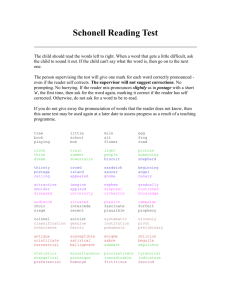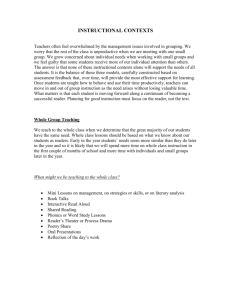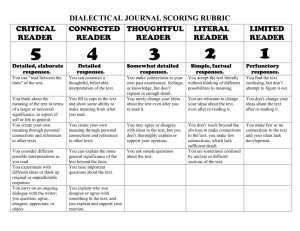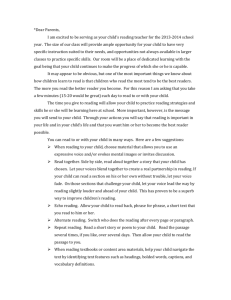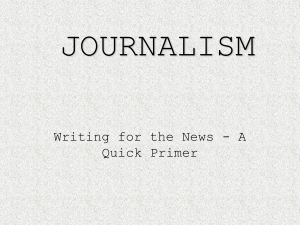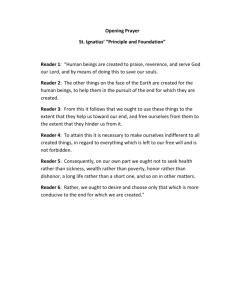Weekly Reader Response (Nothing Fishy about this – hah hah)
advertisement
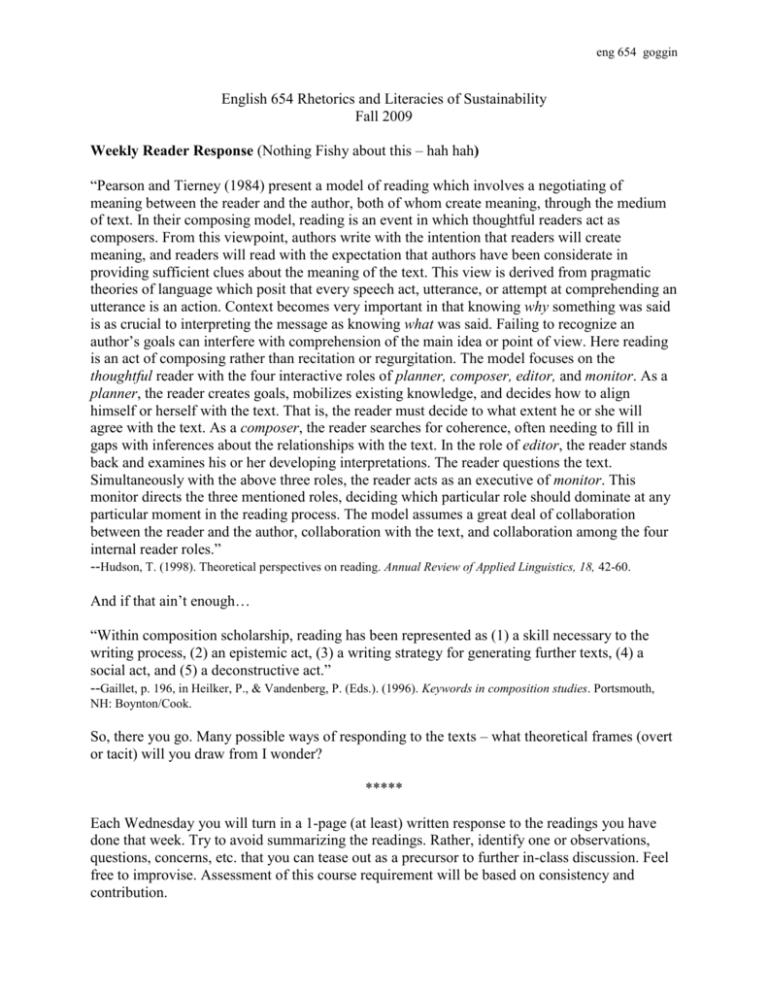
eng 654 goggin English 654 Rhetorics and Literacies of Sustainability Fall 2009 Weekly Reader Response (Nothing Fishy about this – hah hah) “Pearson and Tierney (1984) present a model of reading which involves a negotiating of meaning between the reader and the author, both of whom create meaning, through the medium of text. In their composing model, reading is an event in which thoughtful readers act as composers. From this viewpoint, authors write with the intention that readers will create meaning, and readers will read with the expectation that authors have been considerate in providing sufficient clues about the meaning of the text. This view is derived from pragmatic theories of language which posit that every speech act, utterance, or attempt at comprehending an utterance is an action. Context becomes very important in that knowing why something was said is as crucial to interpreting the message as knowing what was said. Failing to recognize an author’s goals can interfere with comprehension of the main idea or point of view. Here reading is an act of composing rather than recitation or regurgitation. The model focuses on the thoughtful reader with the four interactive roles of planner, composer, editor, and monitor. As a planner, the reader creates goals, mobilizes existing knowledge, and decides how to align himself or herself with the text. That is, the reader must decide to what extent he or she will agree with the text. As a composer, the reader searches for coherence, often needing to fill in gaps with inferences about the relationships with the text. In the role of editor, the reader stands back and examines his or her developing interpretations. The reader questions the text. Simultaneously with the above three roles, the reader acts as an executive of monitor. This monitor directs the three mentioned roles, deciding which particular role should dominate at any particular moment in the reading process. The model assumes a great deal of collaboration between the reader and the author, collaboration with the text, and collaboration among the four internal reader roles.” --Hudson, T. (1998). Theoretical perspectives on reading. Annual Review of Applied Linguistics, 18, 42-60. And if that ain’t enough… “Within composition scholarship, reading has been represented as (1) a skill necessary to the writing process, (2) an epistemic act, (3) a writing strategy for generating further texts, (4) a social act, and (5) a deconstructive act.” --Gaillet, p. 196, in Heilker, P., & Vandenberg, P. (Eds.). (1996). Keywords in composition studies. Portsmouth, NH: Boynton/Cook. So, there you go. Many possible ways of responding to the texts – what theoretical frames (overt or tacit) will you draw from I wonder? ***** Each Wednesday you will turn in a 1-page (at least) written response to the readings you have done that week. Try to avoid summarizing the readings. Rather, identify one or observations, questions, concerns, etc. that you can tease out as a precursor to further in-class discussion. Feel free to improvise. Assessment of this course requirement will be based on consistency and contribution.
